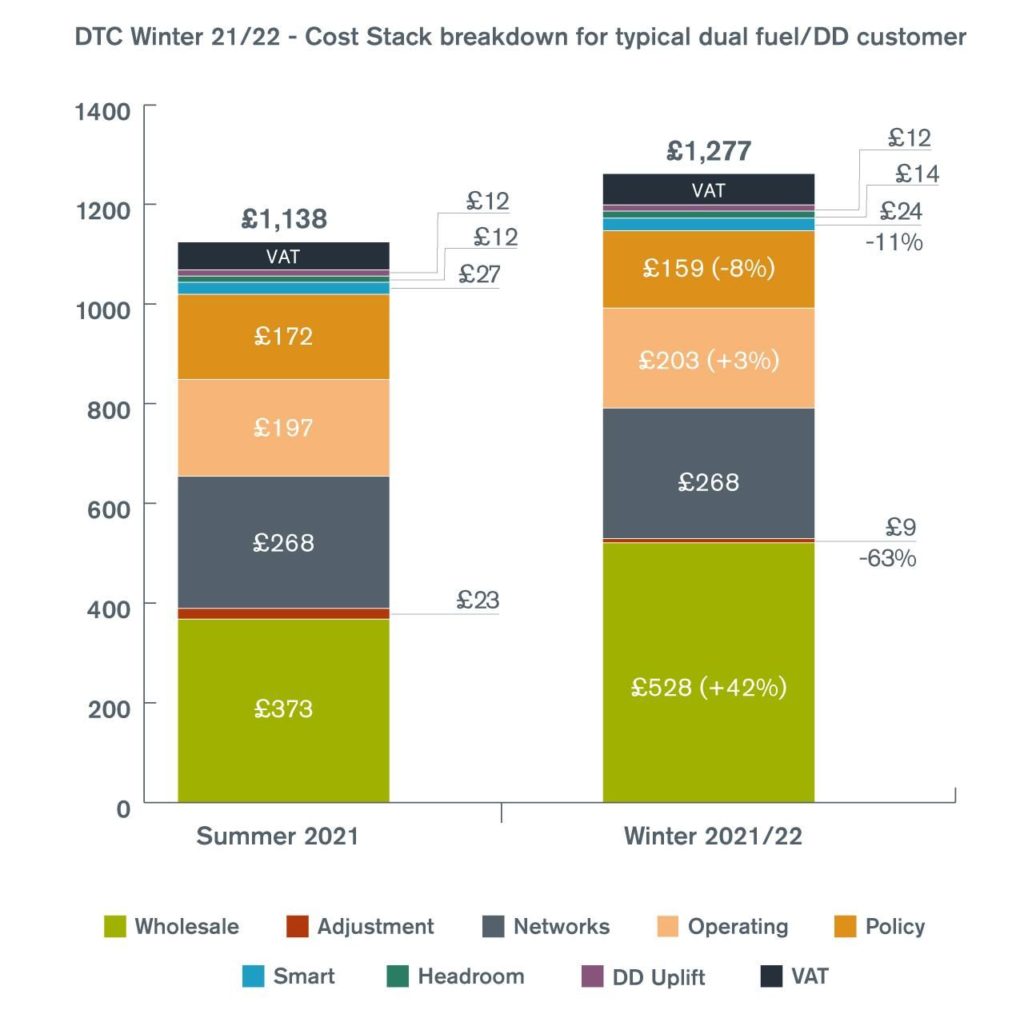How much are UK energy prices going up and why?
Record gas prices are driving up the UK’s energy price cap by £139, Ofgem, the energy regulator has reported. The Institute of Economic Affairs said the energy price cap is “useless” and could backfire on consumers. The Freelance Informer reports.
The energy price cap will increase from 1 October for the 15 million customers. Those on default tariffs paying by direct debit will see an increase of £139 from £1,138 to £1277. Prepayment customers will see an increase of £153 from £1,156 to £1309.
This increase is driven by a rise of over 50% in energy costs over the last six months with gas prices hitting a record high as the world emerges from lockdown.
Surging global fossil fuel prices are already driving up inflation for consumers, making fixed-rate energy tariffs not covered by the price cap, as well as petrol and diesel more expensive.
Ofgem
Ofgem said that the price cap offers a safety net for customers who haven’t switched by making sure that suppliers only pass on legitimate costs.
- Ofgem says those on default tariffs are saving an estimated £75-£100 or £1 billion every year thanks to the price cap
- Any customer in vulnerable circumstances or worried about paying their energy bill should contact their supplier to access the support available
- Customers may be eligible for extra help such as affordable debt repayment plans or payment breaks, emergency credit for prepayment meters and a £140 bill rebate under the Warm Home Discount
- Customers can also shop around to save money before the increase takes effect on 1 October
“The price cap means suppliers only pass on legitimate costs of supplying energy and cannot charge more than the level of the price cap, although they can charge less,” said Jonathan Brearley, chief executive of Ofgem.
“If you’re struggling to pay your bill you can get in touch with your supplier to access the help that’s available and if possible, shop around for a better deal,” he said.
It may be worth looking at renewable energy suppliers, even though they too have to be in line with Ofgem’s price cap. For example, when wholesale costs dropped over the pandemic, Octopus Energy, a green energy supplier, claimed to be the first supplier to cut prices.

Why are energy prices soaring?
Ofgem adjusts the price cap twice a year based on the latest estimated costs of supplying energy.
The biggest and most unpredictable factor is the wholesale cost of electricity and gas paid by suppliers and influenced by global markets. This accounts for roughly 40% of the overall price cap level.
Gas prices have risen to a record high in Europe due to a recovery in global demand and tighter supplies. This is increasing the cost of heating homes and pushing up electricity prices.
Ofgem
Last winter, the level of the cap fell by £84 after passing onto customers the savings from lower wholesale energy costs as countries went into lockdown and demand fell.
Andy Mayer, Chief Operating Officer at free-market think tank the Institute of Economic Affairs, said, “Energy prices are linked to global markets and domestic policies. After energy consumption fell during the pandemic, demand is roaring back and energy prices are rising.”
Mayer said that the energy price cap can’t change underlying costs, nor does it guarantee lower bills for consumers.
“It is in every sense a useless policy,” said Mayer.
“To get cheaper energy we need undistorted price signals and open markets to encourage competition, not more cosmetic tinkering.
“The Government’s job is to encourage affordable security of supply. The energy price cap is a crude attempt to second-guess the market and will continue to backfire,” he said.
Does the price cap affect me?
The energy price cap is backstop protection from the government, calculated by Ofgem.
It applies if you’re on a default energy tariff, whether you pay by direct debit, standard credit or a prepayment meter.
It won’t apply if you:
- are on a fixed-term energy tariff
- have chosen a standard variable green energy tariff Ofgem has exempted from the cap


